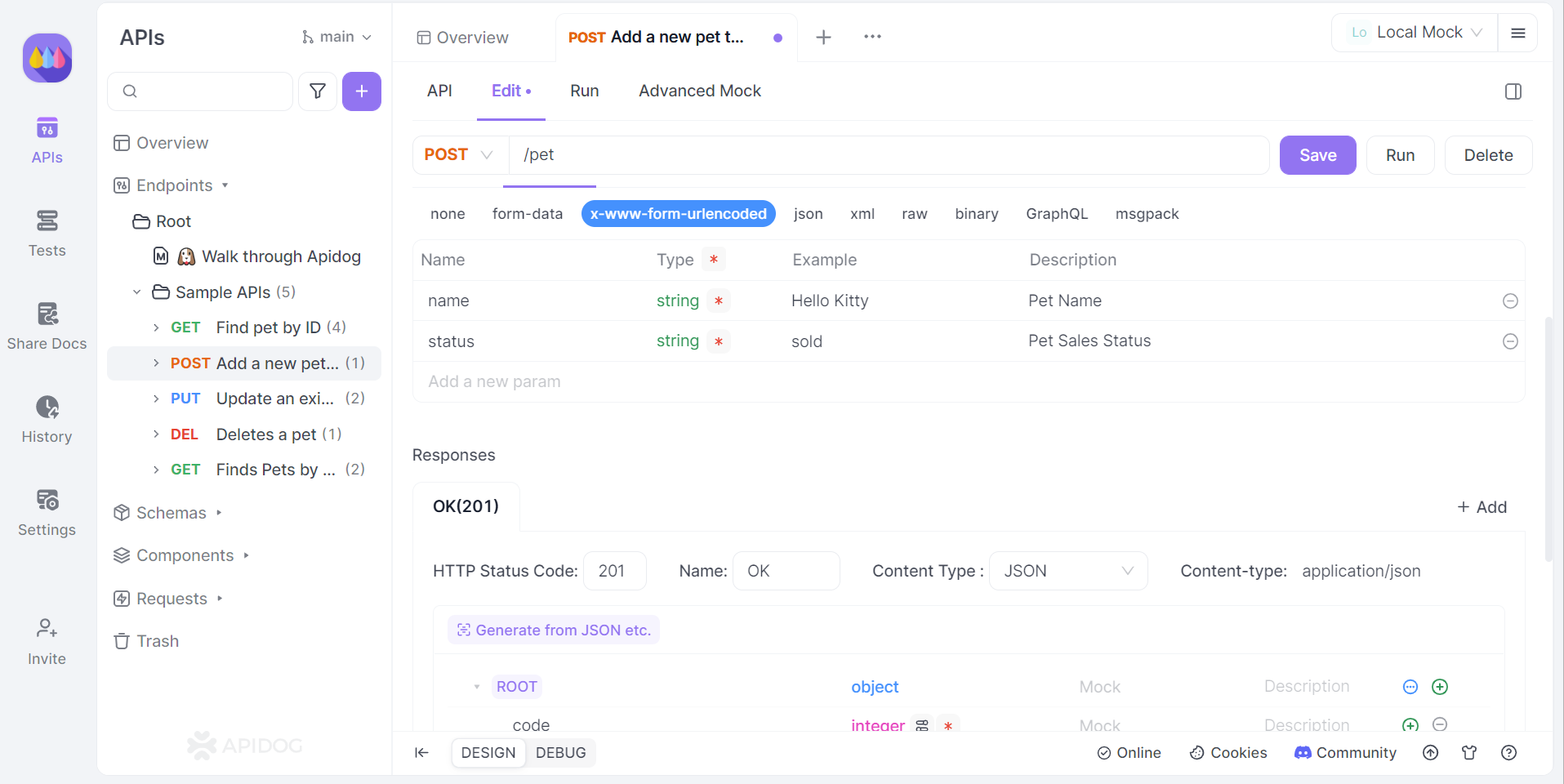GitLab and Jenkins represent two powerful solutions in the DevOps landscape, each offering unique approaches to continuous integration and continuous delivery (CI/CD).
Apidog is a low-code API platform designed to simplify API development for everyone. With Apidog, you can design, test, document and mock APIs.
To learn more about Apidog, make sure to check out the button below!

Here's a comprehensive comparison of these tools:
GitLab Overview
GitLab is a complete DevOps platform that enables professionals to perform all tasks in a project lifecycle, from planning and source code management to monitoring and security1. As one of America's fastest-growing private software companies, GitLab serves over 100,000 users, including major organizations like IBM, Sony, Goldman Sachs, and NASA.
Key Advantages of GitLab
- User-friendly interface and straightforward setup
- Unlimited free private repositories
- Built-in integration capabilities with APIs and third-party services
- Reliable uptime
- Enhanced code quality and reduced deployment times
- Comprehensive security features including vulnerability scanning and secret management
Jenkins Overview
Jenkins is an extensible automation server that serves as a cornerstone for many DevOps operations. It excels in managing and building CI/CD pipelines, making it a favorite among software engineers and DevOps professionals.
Key Advantages of Jenkins
- Highly scalable for both small and large applications
- Straightforward configuration process
- Extensive plugin ecosystem with over 1,800 community-contributed plugins
- Parallel job execution capabilities
- Strong community support with nearly two decades of presence
- Platform independence
Common Use Cases
GitLab Use Cases
- Version control and code management
- Continuous deployment
- Code analysis and review
- Kanban and issue management
- Sprint management and team collaboration
- Secure private repository hosting
Jenkins Use Cases
- Continuous Integration
- Code deployment automation
- Automated testing and monitoring
- Code scanning and quality analysis
- Database backup/restore automation
- Task scheduling and repetitive process automation
Feature Comparison
| Feature | GitLab | Jenkins |
|---|---|---|
| Open-source | Yes | Yes |
| Language Support | Multiple | Multiple |
| Ease of Use | User-friendly | More complex for beginners |
| Hosting Options | Internal/External | Internal/External |
| Prerequisites | Node.JS, Git, Ruby, Go | Java Runtime Environment |
| Maturity | Newer (2014) | Established (2011) |
Integration and Automation
GitLab provides a seamless, integrated experience within its ecosystem, making it particularly effective for teams wanting an all-in-one solution. Its CI/CD functionality features an intuitive API and provides clear error messages, making pipeline setup more efficient.
Jenkins, on the other hand, excels in automation flexibility. It can monitor and execute repetitive tasks throughout project development, continuously test builds, and alert teams to errors early in the process.. Its ability to distribute work across different machines without impacting the GUI makes it particularly powerful for complex automation scenarios,
Security and Collaboration
GitLab emphasizes security with built-in features for vulnerability scanning, code scanning, and secret management. It facilitates team collaboration through features like code review processes, merge requests, and version history tracking.
Jenkins provides robust security tools out of the box, including role-based access control, session management, and encryption capabilities. It can be enhanced further through security-related plugins.
Community and Support
Both platforms benefit from strong community support but in different ways. Jenkins has a longer history and larger plugin ecosystem, with extensive community-contributed resources. GitLab, while newer, has rapidly grown its community and offers comprehensive documentation and support options.
Streamline API Development with Apidog
If you are looking for an API platform that comes with CI/CD support, you should strongly consider Apidog.

CI/CD For Testing in Apidog

Navigate to the "CI/CD" section within your test environment and select the +New button to begin configuring your continuous integration pipeline before proceeding with embedded code generation.ShareRewrite

Configure your testing parameters by selecting the runtime settings, input data, iteration count, and delay time between runs. Complete the setup by clicking Save in the top-right of the screen.
Testing APIs Thoroughly With Apidog
Once you have implemented your CI/CD pipeline, ensure that you test your APIs individually.

Once you have included all the necessary components for an API, you can obtain an API response.

Track API performance through response codes, and leverage the formatted JSON responses for seamless integration with your frontend implementation.
Conclusion
The choice between GitLab and Jenkins often depends on specific organizational needs. GitLab is ideal for teams seeking an integrated, user-friendly platform with built-in features for the entire DevOps lifecycle. Jenkins is better suited for organizations requiring extensive customization, particularly those with complex automation needs and the technical expertise to leverage its vast plugin ecosystem.
Both tools continue to evolve and maintain their positions as leading solutions in the CI/CD space, with each offering distinct advantages for modern software development workflows.
